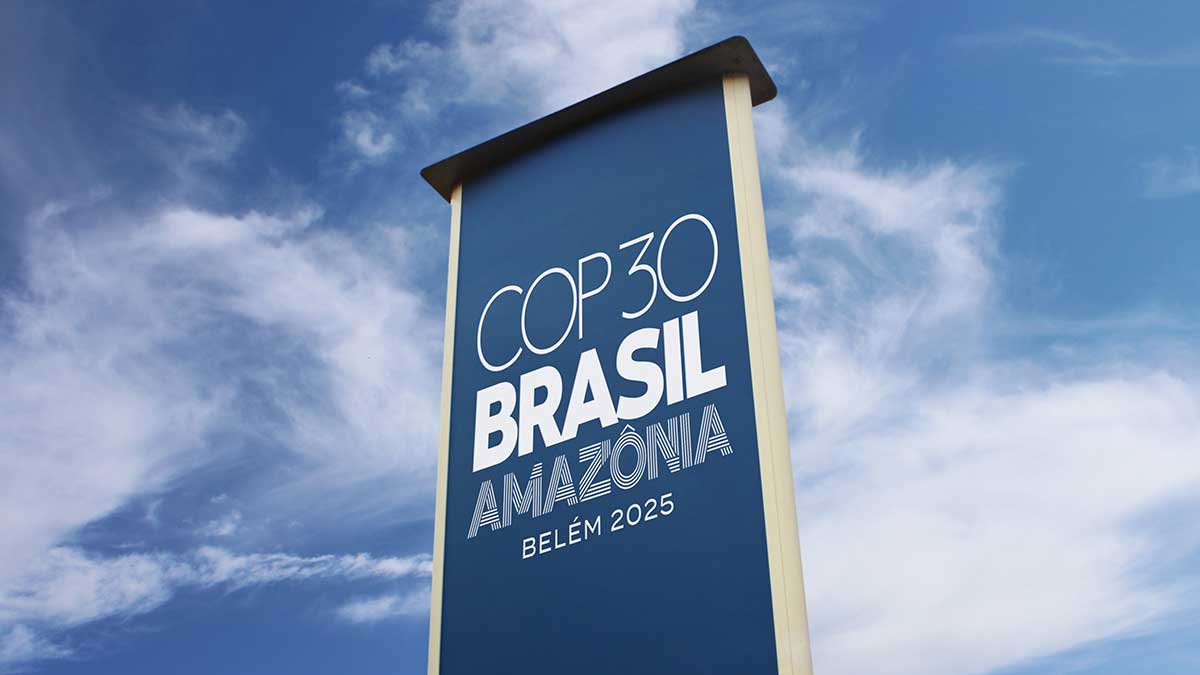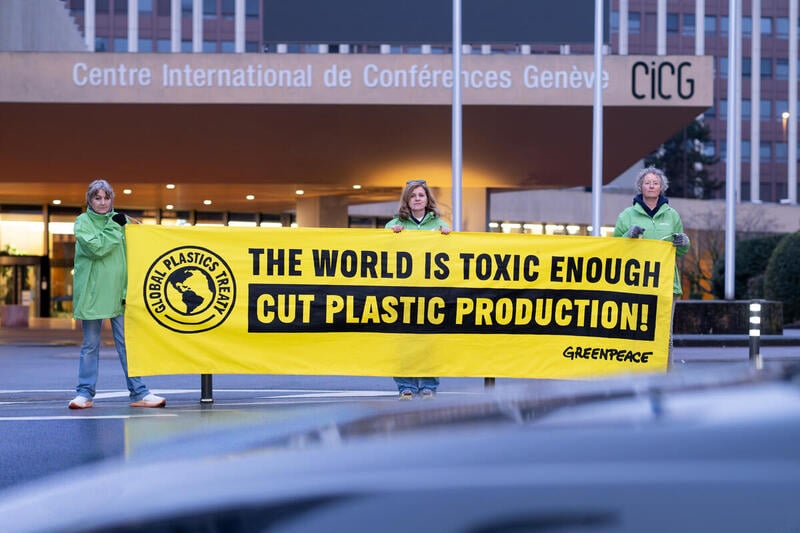Following tense, extended negotiations in Belém, Brazil, the fractious COP30 meeting concluded with a compromise agreement that climate advocates are calling a missed opportunity at a critical moment for global action.
COP30’s November 22nd “Global Mutirão” text, which refers to the Brazilian Portuguese word for collective effort, falls short of the ambitions that many brought to the global climate conference, particularly in the areas of fossil fuel transition and climate finance.
Before COP30 began, Rebecca Thissen, Global Advocacy Lead for Climate Action Network International, told Sustainability In Your Ear that the conference faced a fundamental challenge: “If you want to have an implementation COP, as they’ve been saying over and over again, you need to put some finance on the table. Otherwise, you’re not going to implement any plan.”
The final agreement calls for increasing climate transition funding to $1.3 trillion annually—less than 1% of global GDP—by 2035. It urges developed countries to lead by donating $300 billion per year. However, the final text includes only weak language that asks wealthy nations to “triple adaptation finance compared to 2025 levels by 2030.” In fact, this is a retreat from the 2030 timeline in earlier drafts of the agreement, which oil-producing nations resisted, falling far short of the Glasgow commitment to double adaptation funds from $20 billion to $40 billion. The Global Mutirão agreed to by a fractured collection of delegates merely calls for efforts rather than requiring concrete action.
Thissen had warned about this persistent problem: “We’ve been repeating for years that if we do not stop this kind of debt-inducing climate finance from flowing to developing countries, you would never solve the whole issue we have faced in the climate crisis.”
Approximately 71% of climate finance currently comes in the form of loans rather than grants, forcing vulnerable nations deeper into debt while they try to address a crisis they didn’t create.
“Those two weeks will never solve the whole problem we are facing. We have to use the COP as kind of a compass to implement the Paris Agreement. But then effort has to come at the regional, the national, the local level, all year long.”
Fossil Fuels: The Elephant Not in the Room
The most contentious outcome involves what the agreement doesn’t say. After COP28’s historic Dubai consensus to “transition away from fossil fuels,” COP30’s text contains no mention of fossil fuels. With no references to fossil fuel, nor a roadmap for transitioning away from coal, oil, and gas demanded by over 80 countries, the final text is a significant reversal on the road to a low-carbon society.
COP30 President André Corrêa do Lago announced from the floor that Brazil will develop two separate roadmaps during its year-long presidency. One will map how to halt deforestation and another for a “just, orderly, and equitable transition away from fossil fuels,” which will be presented at future COPs. While the announcement drew applause, it effectively removed these critical issues from the binding COP30 agreement.
Tracy Carty of Greenpeace International said in a statement: “Hopes were raised by initial proposals for roadmaps both to end deforestation and fossil fuels, but these roadmaps have disappeared and we’re again lost without a map to 1.5°C and fumbling our way in the dark while time is running out”.
The Just Transition That Wasn’t
Before the conference, Thissen identified the Just Transition Work Programme, a UNFCCC initiative launched at COP27 in 2022 that promotes pathways to achieve Paris Agreement climate goals while ensuring the transition is just and equitable for workers, communities, and countries, as one of three critical outcomes Climate Action Network hoped to achieve. “We don’t connect social justice to climate justice enough,” she explained.
The final text establishes a Just Transition Mechanism to coordinate international cooperation, technical assistance, and capacity-building, but critically, it does not secure additional or predictable finance from developed to developing countries. The text drops language on “means of implementation”—the traditional obligation for wealthy nations to provide finance, technology transfer, and support—and instead emphasizes only the general link between limiting warming to 1.5°C and pursuing just transition pathways, creating a framework for cooperation without the resources to fund it.
The Science Says We’re Not Close
The scientific backdrop makes these shortfalls particularly alarming. The world will exceed 1.5°C of warming before 2035, and staying below this threshold requires slashing annual greenhouse gas emissions by 55% from 2019 levels by 2035.
Current National Determined Contribution budgets, the amount of CO2 each nation will emit, indicate the world will achieve only a 10% emissions cut by 2035. Scientists argue that 60% reductions are needed globally, but only one of 24 countries that submitted 2035 NDC targets as of June 2025 is alinged with meeting the 1.5°C goal.
When asked whether negotiators would come to terms with the ambition gap, Thissen expressed hope for “a collective recognition of this Ambition Gap,” but added that “An important recognition would also be that the lack of ambition is linked to the lack of finance and adequate support that has been provided to developing countries.”
Indigenous Voices Demand More
Despite record Indigenous participation, only 14% of Indigenous attendees were admitted to the Blue Zone, where official negotiations occurred. Taking up their cal for action outside the formal session, the Munduruku Indigenous group staged a peaceful protest blocking the main entrance. They demanded an end to extractive activities that threaten their territories in the Tapajós and Xingu River basins.
Indigenous leader Djalma Ramalho Goncalves, from southeastern Brazil, where lithium mining is on the rise, told The National, a New Zealand newspaper, “Society already knows how forests managed by Indigenous people have seven times lower deforestation rates, but we are still not thinking of demarcation [officially recognizing, mapping, and establishing the boundaries of Indigenous territories] as an urgent climate adaptation issue”.
A COP in Context
Thissen had warned that COP30 faced “a very challenging context” that was “trying to achieve too many things at the same time with this COP, and again, hoping that one summit would solve a very complex and deep crisis.”
Her concerns proved prescient. While the agreement establishes some implementation mechanisms, including a “Global Implementation Accelerator,” a voluntary cooperative platform to help countries implement their climate plans, along with an international initiative to coordinate climate action and investment, “Belém Mission to 1.5,” it lacks the binding commitments on finance, fossil fuels, and adaptation that vulnerable nations and climate advocates demanded.
What Happens Next
Brazil will hold the COP presidency for the next year, and has committed to developing roadmaps for deforestation and the transition away from fossil fuels. The next COP will convene in Turkey in November 2026, where these roadmaps are expected to be presented.
But as Thissen emphasized in her pre-COP interview: “Those two weeks will never solve the whole problem we are facing. We have to use the COP as kind of a compass to implement the Paris Agreement. But then effort has to come at the regional, the national, the local level, all year long.”
For those looking to make a difference, she offered clear advice: “Hold your government or the people you elected accountable. Put pressure on your climate, environment, finance ministries all year long, and specifically in the capitals where the power lies. And don’t stop talking about climate after the COP.”
Ten years after Paris, the gap between commitments and action remains vast. Whether COP30’s “collective effort” will prove sufficient to close that gap is a question the next year—and the next decade—will answer.
Editor’s Note: For more on the pre-COP conversation with Rebecca Thissen, listen to Sustainability In Your Ear.
Source link
Earth911 earth911.com


